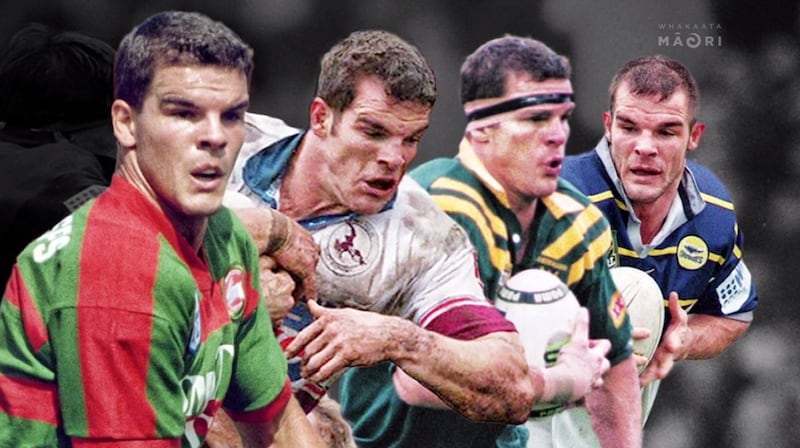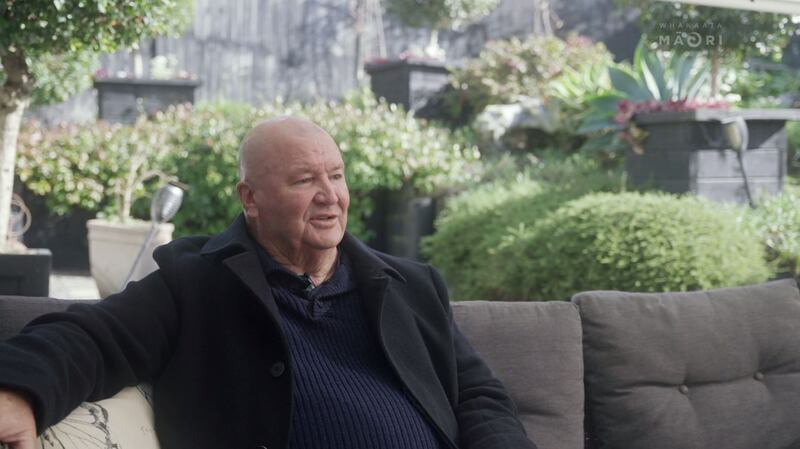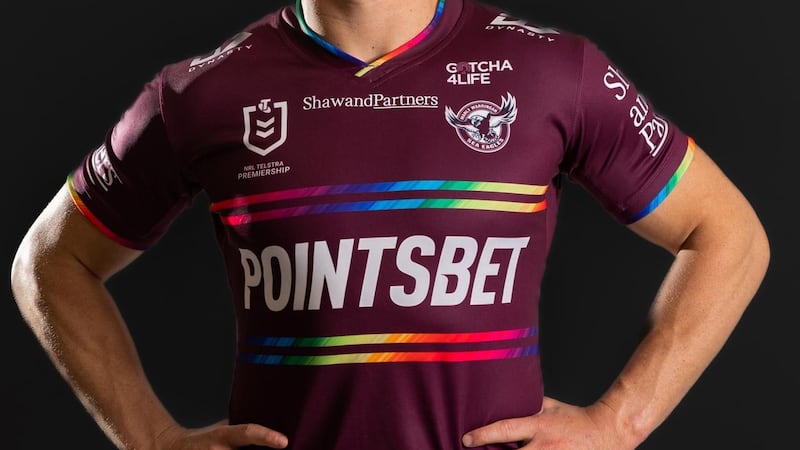“I love being gay. I’m so grateful I was born gay. It’s totally enlightened me and also my family.”
It was the expression of pure joy and pride by one of Australia's toughest league players which made Te Ao with Moana viewers smile and moved members of the Rainbow community this week.
“I grew up in an incredibly homophobic family," Roberts says. "But they’ve all changed. They’ve all seen that it’s okay to love. This is not a choice and it’s made them richer and given them more insight into what it is to care for other people and how powerful that is.”
Ian Roberts who is the only openly gay man to play in the NRL (National Rugby League) has shared his reaction on Te Ao with Moana (Whakaata Māori) to Manly Sea Eagles players refusing to wear a rainbow-coloured pride jersey.
Last week seven players stood down for their match against the Sydney Roosters claiming the playing jerseys didn't align with their religious beliefs.
Roberts admits to finding it tough at times being the solo voice for gay men.
"On Thursday morning, I did have a bit of a meltdown. I was supposed to do some other publicity and it was just too much, mate. My partner had to cancel those meetings, because I was just like, I can't keep up the happy face all the time," Roberts told Te Ao with Moana reporter Hikurangi Jackson.
“It was devastating to get that news for me. I'm not attacking those seven players - it’s not about that - but it was kind of devastating,”

Ian Roberts played over 200 NRL games and represented both New South Wales and Australia. File.
Roberts is a retired Manly Sea Eagles great. He's played over 200 NRL games and has represented both New South Wales and Australia. In 1995 in his final season with the Sea Eagles he made it public that he was gay.
"You know, me being gay was like the worst kept secret in rugby league for such a long time. Before I came out, I had this reluctance to come out because I was leading a gay life anyway. I mean the Manly mascot, the big sea eagle guy running around in the suit - that was my boyfriend and everyone knew that that was. Before I came out, I felt like it was almost like this political decision. Why do I have to come out to be accepted? But looking back now that was also a bit of stubbornness. I was just kind of demanding equal rights without having to declare anything basically."
'They need representation'
“But I understand the importance of visibility and how that affects other people and if you can’t see you, you can’t be it and how that affects young people. They need to see themselves up there. They need representation.”
Robert’s biggest concern about the recent boycott was how young people could have been affected.
“It has potentially catastrophic consequences for some kids out there in the suburbs. The LGBTIQA+ community are 11 times more likely to take their life… and these are the potential consequences of boycotts of pride rounds,” says Roberts.
“People don't realize that there are kids at home feeling like they are less or kids at home feeling like they are somehow alien and that they are worthless because they're gay.”
Roberts was emotional when asked how he might have felt if the pride round happened back when he played back in the 1980s.
“There was such a different understanding of what it was to be LGBTIQA+ back then, a misunderstanding, and I can only imagine it would've been incredibly empowering. It empowers young people.”

Sir Graham Lowe. Source: File
Robert’s old coach and close friend is Sir Graham Lowe. Lowe coached Roberts in Wigan and for the Manly Sea Eagles.
“It was quite obvious for all to see Ian's way," Lowe recalls. "But that didn't bring any challenge whatsoever because I respected him as a player. He respected me as a coach. All I was looking for was for him to perform,” Lowe says.
“Give me 13 Ian Roberts on the field any day whatsoever and I'd coach them the rest of my life.”
Lowe says the recent jersey boycott was “really sad and badly handled”.
“When the idea came up to wear this jersey and help promote the inclusiveness and whatnot, there was probably a lot of enthusiasm but everything happened too quickly. It seems they forgot to engage the most important people of the whole lot, which were the players to start with.”

Manly Sea Eagles rainbow-coloured pride jersey. Source: File
Lowe says he feels sorry for the seven players who refused to wear the jersey because of the comments they may receive from the public.
“I think that while they're together they'll feel pretty strong together but there’ll be times when they're on their own and doubt will come into their actions. They need to be able to cope with the comments they're going to get.”
He also thinks they need to be understanding of other people’s views.
“They expected everybody to understand their view when they took their action. Well, now the shoe's on the other foot but they shouldn't be penalised.”
Nevertheless, Roberts says last week’s events has prompted a conversation “that had to be had”.
'Incredibly powerful'
“I really think it's been a kind of a healthy thing. I'm really glad that Manly stuck to their guns also, and that they allowed those seven players to stand down, but they didn't change their jerseys.
"By Manly doing that, they were basically saying there are some things in rugby league that are more important than two points, you know? We are now talking about the quality and the wellbeing of our supporters and our playing group. It was incredibly, incredibly powerful.”
Te Ao with Moana - Whakaata Māori, Mon 8pm

